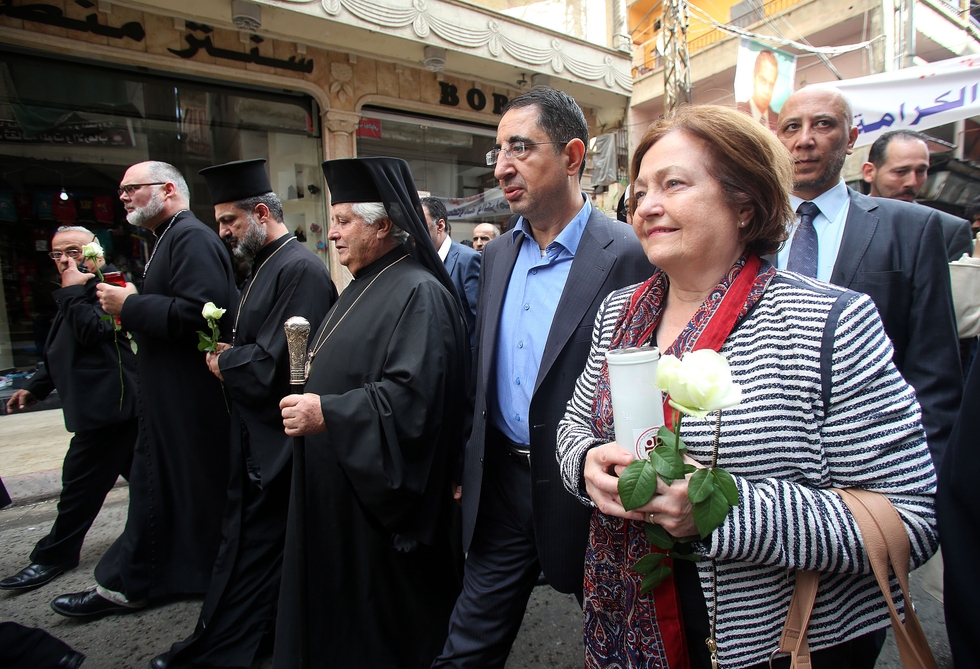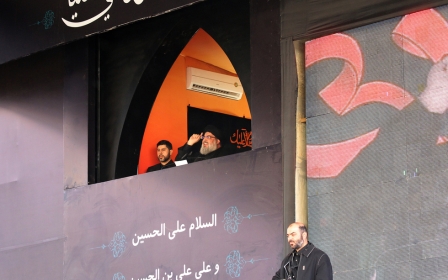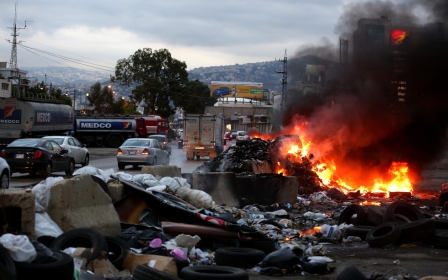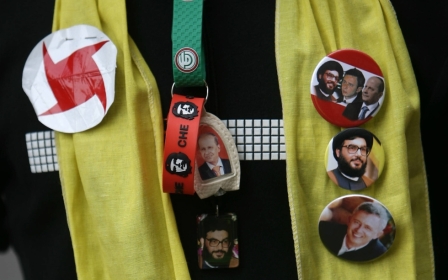Lebanon arrests suspected mastermind of November Beirut bombing

Lebanese police on Sunday arrested the suspected mastermind behind blasts in the southern district of Beirut that killed dozens of people in November, a security source said.
The man, identified as Abu Talha, was accused of being the chief "coordinator" of a "cell that prepared a string of explosions in Lebanon" including in Beirut's Burj al-Barajneh district, the security source said.
He was seized in a special operation carried out by an elite unit of the Internal Security Forces (ISF) in the northern port city of Tripoli, the source told AFP.
The explosions in the densely populated neighbourhood of Burj al-Barajneh on 12 November killed 44 people. They were claimed by the Islamic State group.
According to the security source, Abu Talha "was in communication with IS in Raqqa," the de facto Syrian capital of IS's self-styled "caliphate".
Security forces had been monitoring Abu Talha for "a long period," including when he went into hiding after the December arrest of Bilal al-Baqqar, another prominent planner, the source added.
In an emailed statement, the ISF confirmed it had arrested Abu Talha in a dawn raid on a residential building in Tripoli.
It said he was being interrogated.
A security source in northern Lebanon said Abu Talha, born in 1986, was also known as Khaled Seifeddine Zeineddine.
On 15 November, Lebanese Interior Minister Nuhad Mashnuq said security forces had arrested 11 people, mostly Syrians, over the bombings.
At the time, he said "the whole suicide bombing network" behind the Burj al-Barajneh blasts had been arrested.
Tripoli is one of Lebanon's most volatile cities, and fighting has broken out there between its majority-Sunni population and minority Alawites.
The United States urged its citizens on Friday to avoid travelling to Lebanon.
"Sudden outbreaks of violence can occur at any time in Lebanon, and armed clashes have occurred in major cities," the State Department said, warning of risks in this politically fragile country bordering war-wracked Syria.
"The Department of State urges US citizens to avoid all travel to Lebanon because of ongoing safety and security concerns.
"US citizens living and working in Lebanon should understand that they accept the risks of remaining in the country and should carefully consider those risks."
Middle East Eye propose une couverture et une analyse indépendantes et incomparables du Moyen-Orient, de l’Afrique du Nord et d’autres régions du monde. Pour en savoir plus sur la reprise de ce contenu et les frais qui s’appliquent, veuillez remplir ce formulaire [en anglais]. Pour en savoir plus sur MEE, cliquez ici [en anglais].




